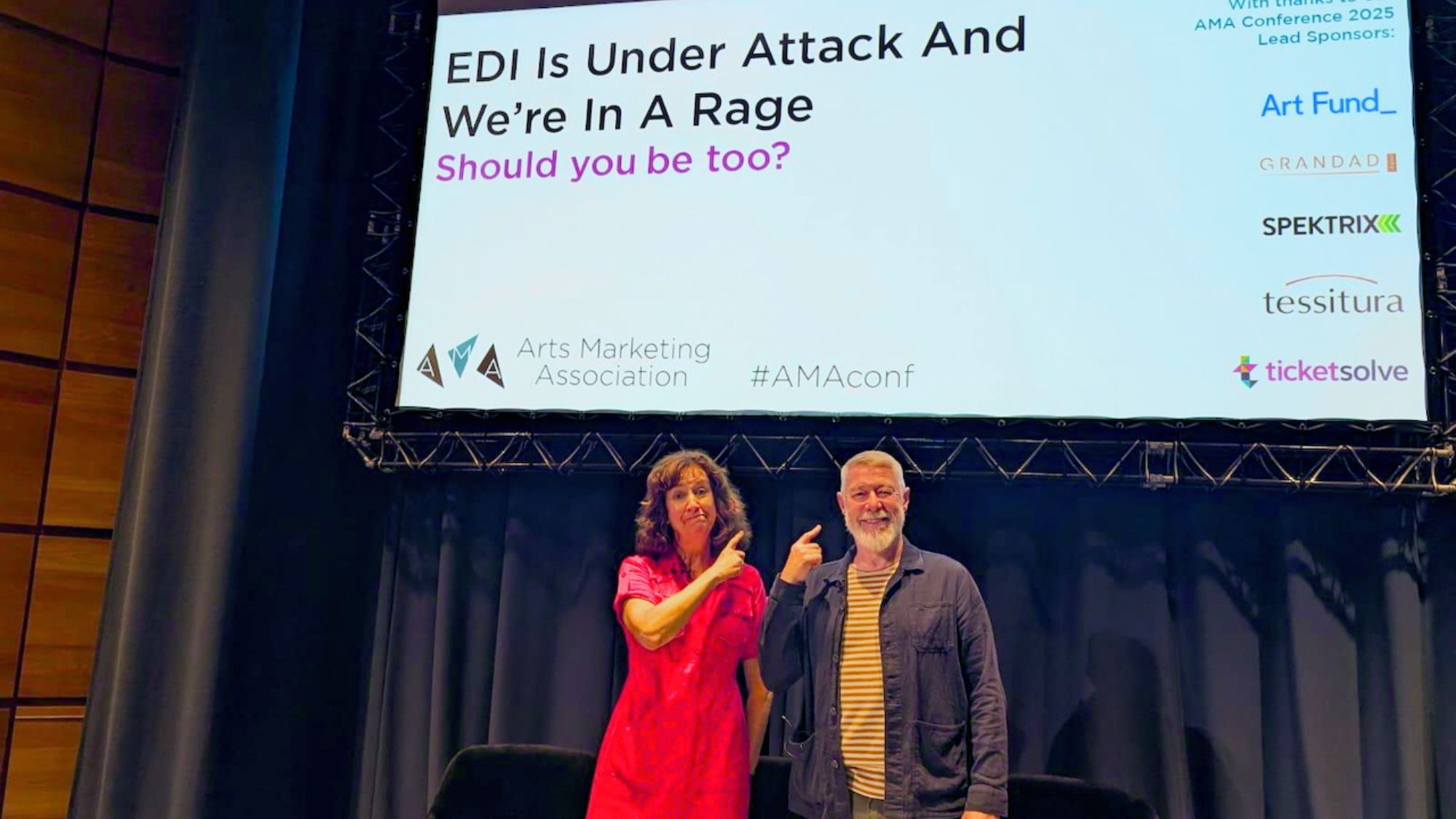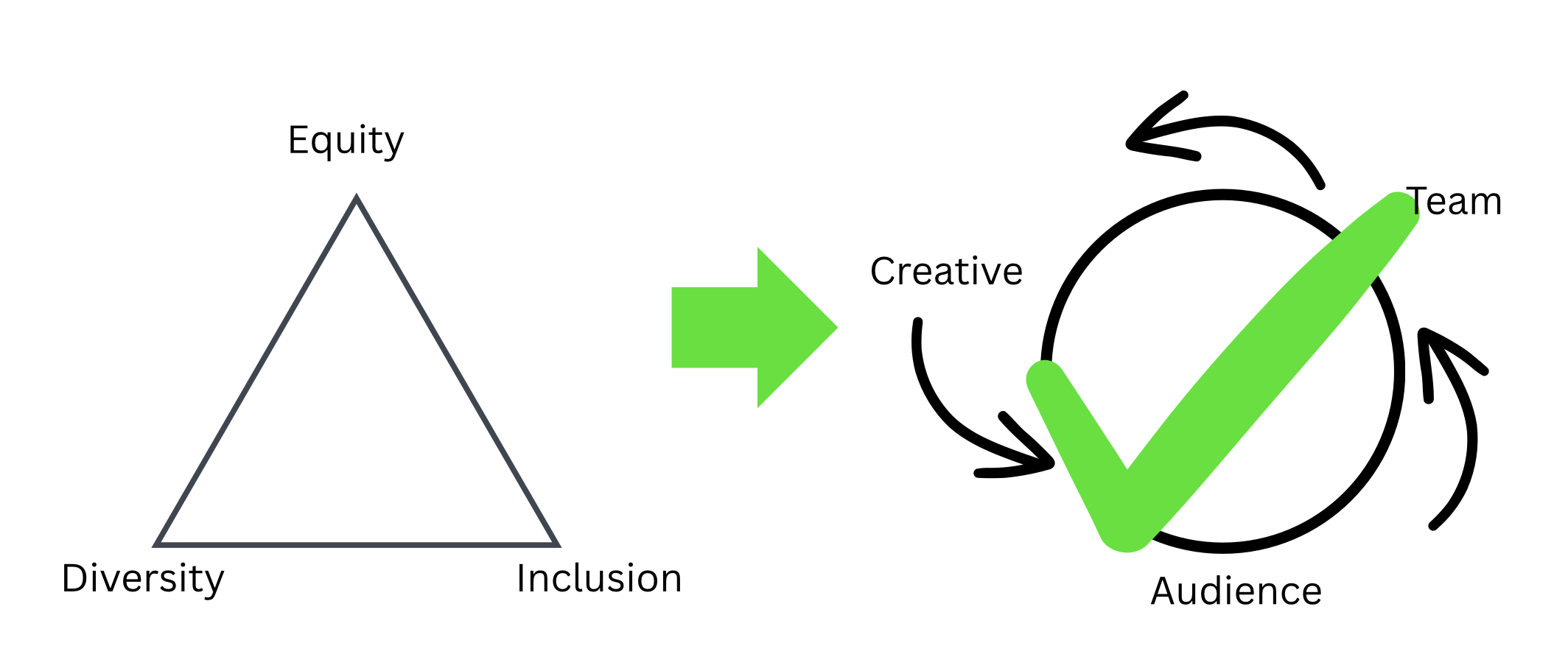
Jane and Rob spoke together at the Arts Marketing Association conference last week in Edinburgh. Here, Rob reveals what they had to say, and why.
Rage. It’s a powerful word and a strong feeling. It was also the title of this year’s DaDaFest International Festival held in and around Liverpool, presenting and celebrating the best in Deaf and Disability Arts.
I am the current Chair of this 40-year-old, groundbreaking organisation, and Jane is a former Chair. Jane is also the current Chair of the Arts Marketing Association, whose conference we were invited to speak at this month.
The theme of the conference, Amplify, sat well with Result’s values and mission to amplify the voices of marginalised people and communities. We wanted to convey a holistic approach to EDI and how, if you embed equity, diversity and inclusion throughout your organisation and audience/customers/clients, the benefits can have major impacts.
So, as with all things Result CIC, in the spirit of practising what we preach, we started the talk in the most inclusive way that we could, given the already excellent access provisions made by the conference organisers. Namely:
- A quick check to ask if everyone had the access they required
- A commitment to speak at a considered pace, for both the benefit of the audience but also for the interpreters lipspeaking, using BSL and operating stagetext captions
- A visual description of who we are (and of slides when appropriate)
- A summary of what to expect from the presentation, particularly useful for neurodiverse people in the room
And off we went.

So, why the rage?
It’s no secret that funding for, and programmes in, equity, diversity and inclusion (EDI) have been under attack of late. The impacts filtering down as a consequence of global organisations cutting back on their EDI spend and commitment in the US, are starting to be felt here in the UK. Amazon, Meta, Google, even Disney, have all slashed their EDI programmes and given that these companies alone turn in annual profits that exceed $1 trillion, it’s fair to say that these are not cost-cutting necessities. Rather, they are an ideological stance.
Meanwhile, a recent report from My Perfect Resume found that:
- 84% of employees want EDI efforts to expand.
- Only 5% believe EDI should be scaled back.
- 69% fear that corporate EDI rollbacks will trigger industry-wide cutbacks.
- 65% say reducing EDI efforts will significantly harm employee retention.
- 64% believe workplace morale will suffer with EDI cuts.
What’s more, in a recent report called Diversity Wins - How Inclusion Matters, the global management organisation McKinsey & Company found that, when there’s diversity in the leadership of an organisation, profits increase.
It’s not surprising. The average cost of replacing a member of staff now in the UK is between £25-£30k, making staff loyalty, satisfaction and retention a real economic driver.
Many arts organisations have been EDI champions quite naturally, the arts being one of the more inclusive industries. Diverse audiences are not only desirable in terms of representation, they’re also necessary to keep funders happy. But, for many such organisations, diversity and equity isn’t always accompanied by actual inclusion, something Jane and I tried to address in our presentation. Too often, and this is usually the responsibility of marketing teams, this becomes about providing access rather than being inclusive.
What does that mean?
Providing access to something isn’t the same as being inclusive - it’s something that good EDI practice embeds within a culture, throughout employees, within working practice. Too often, ED and I are seen as points on a triangle. But truly good practice operates in a circular way, including staff, audiences and artists, like this:

But the same model applies, no matter what the industry. Community, coaches, partners. Policy makers, civil servants, the public.
This is how DaDaFest works. This is how Result CIC operates. And it seemed to resonate with the marketing professionals attending the AMA Conference.
Now, more than ever, the need to amplify the voices of the marginalised feels more important than ever. If you agree, and you’d like to know how Result CIC can support you to embed EDI practice within your organisation, get in touch.

We are what we do and we love what we do.